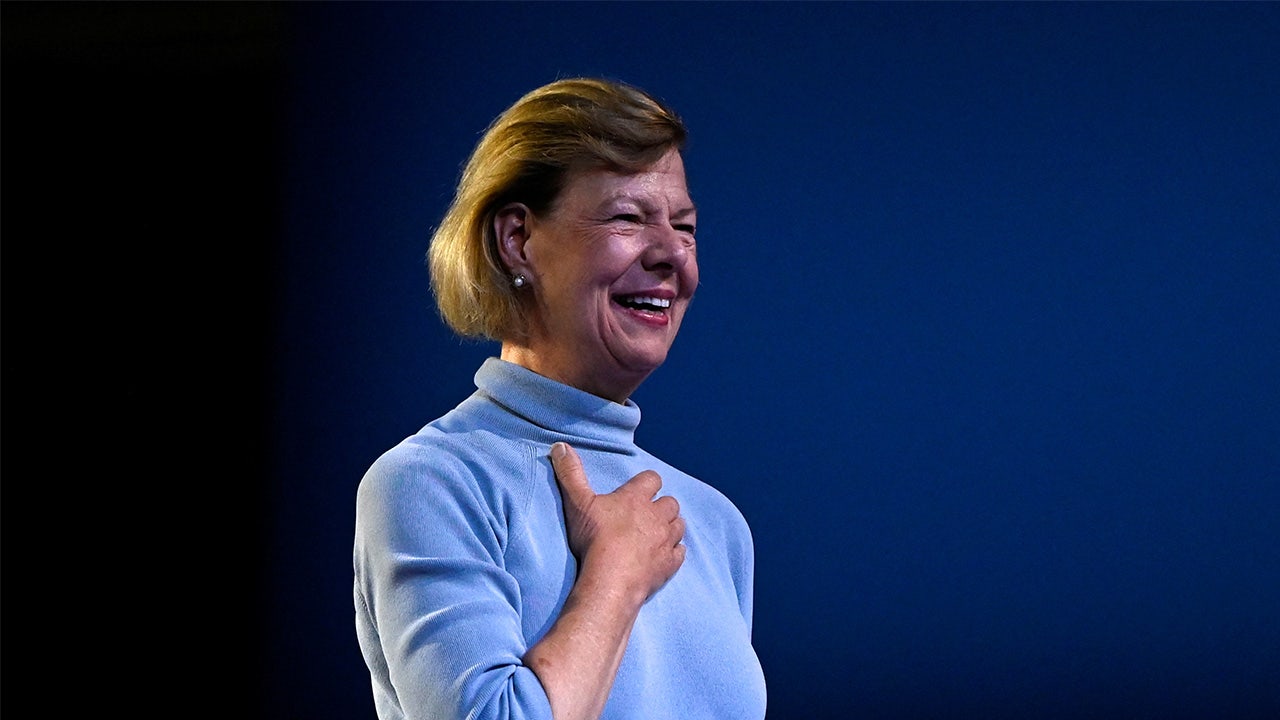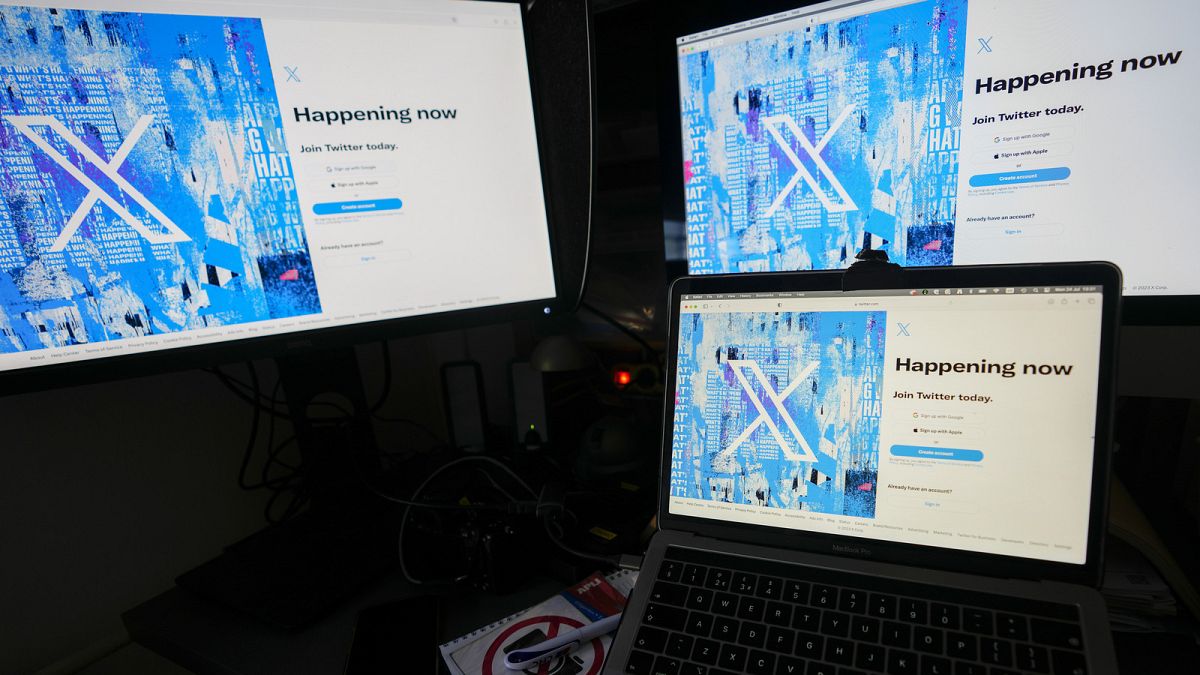Virginia
Virginia primary elections: Here’s everything you need to know to vote on June 20

WASHINGTON – Virginia voters will have the chance to select candidates in their primary elections on Tuesday, June 20. The winners will then face off in what could prove to be a consequential election in November that determines who will control the closely divided legislature.
Thanks to redistricting supervised by the Supreme Court of Virginia and done for the first time without input from legislators, nearly half of the state’s 140 lawmakers ended up with boundaries that overlapped with those of one or even two of their colleagues, triggering about two dozen retirements.
Republicans are defending a narrow 52-48 majority in the House of Delegates and this year, while Democrats are hoping to maintain control of the Senate which they have by a slim 22-18 majority.
Republican Gov. Glenn Youngkin, a potential 2024 presidential candidate, has helped to raise record amounts of money to help the GOP win both chambers, hoping it will allow him to enact his conservative legislative agenda. And while Democrats may have the fundraising edge, they face more primaries.
Here’s everything you need to know about voting in the Virginia primaries.
HOW DO I REGISTER TO VOTE?
The official voter registration for the primary election closed on May 30, but you can still register and vote using a provisional ballot.
To register, you have to be a permanent Virginia resident and a U.S. citizen. Those who come to Virginia temporarily aren’t considered residents for voting purposes.
Virginia has nonpartisan registration, meaning you don’t have to register with a political party for the primaries but you can only vote in one party’s election.
You can check your registration status or register to vote here.
WHEN AND WHERE CAN I VOTE?
Polls open at 6:00 a.m. on the day of the election and closed at 7:00 p.m. EST.
You can check the Virginia Department of Elections’ online citizen portal to find out which district you are in as well as your voting precinct.
WHICH DISTRICTS ARE HOLDING PRIMARIES AND WHO ARE THE CANDIDATES?
All 100 seats in the House of Delegates and all 40 seats in the Senate are up for election this year.
You can find a full list of the primary races being held across the state on the Virginia Department of Elections website.
WHAT DO I NEED ON ELECTION DAY?
On Election Day, you must vote at your assigned polling place, which you can look up here.
Under Virginia law, voters have to bring one acceptable type of identification to vote in person. You don’t have to bring your voter registration information.
Some common forms of acceptable IDs include a Virginia driver’s license (current or expired), a valid employee ID card with a picture, a military ID or a valid student ID. A full list can be found on the Virginia Department of Elections website.
If you don’t bring a valid ID, there are two other options to vote:
- Sign an ID statement to confirm your identity. This option will allow you to vote on a regular ballot.
- If you don’t sign an ID statement, you can vote using a provisional ballot, which is used when a person’s eligibility can’t be confirmed at the polling location by election officials or the general registrar.

Virginia
S&P upgrades Petersburg’s bond rating to AA-, reflecting financial resurgence • Virginia Mercury

S&P Global Ratings has upgraded the city of Petersburg’s general obligation (GO) bond rating to AA- from A+, a move that highlights the city’s strengthened financial health and steady progress toward fiscal stability. The upgrade underscores Petersburg’s success in building reserves, improving liquidity, and achieving a secure financial position after years of turmoil.
Petersburg’s GO bonds are backed by the city’s full faith and credit pledge, affirming its reliability to meet debt obligations. The proceeds from the city’s 2024 GO bond issuance are set to fund several critical projects, including a new courthouse facility, the renovation of a police station, the construction of an animal care center and $1.3 million to refinance older bonds for net savings.
City Manager March Altman said in a statement that the upgraded bond rating reflects continued growth and economic recovery.
“Petersburg has a fund balance of approximately $50 million, which gives it the flexibility to move forward with needed capital projects,” Altman said. “I commend the city council and Petersburg’s Department of Finance for making decisions based on sound fiscal management and best practices.”
The enhanced credit rating not only reflects Petersburg’s financial stability but also unlocks key advantages, including lower interest rates, greater borrowing capacity for vital projects, expanded economic development opportunities, and increased appeal to potential investors.
It further signals to investors that the city’s creditworthiness has improved, potentially reducing borrowing costs for future projects. It also highlights the city’s steady recovery from a financial crisis that left it on the brink of insolvency less than a decade ago.
Petersburg’s financial woes reached a breaking point in 2016, when the city faced a staggering $7.7 million deficit, unpaid bills piling up to $18 million, and critical services at risk of interruption. Poor fiscal oversight, structural deficits and mismanagement led to the crisis, which garnered statewide attention. At the time, the city teetered on the verge of state intervention.
To address the dire situation, Petersburg implemented aggressive reforms, including staff reductions, tighter spending controls and measures to increase revenue. The city also partnered with outside financial advisors to help restore fiscal discipline.
By 2019, Petersburg reported a budget surplus for the first time in years and began rebuilding its financial reserves. The turnaround has since been bolstered by sustained economic growth, improved tax collection efforts, and successful community partnerships.
Mayor Sam Parham said that the city’s goal is to achieve a firm AAA rating.
“With the growth of the Pharmaceutical Campus, the recent approval of the Destination Resort Casino, and the many other economic development and tourism projects, the city is positioned to continue to grow its tax base and fund balance while addressing much-needed capital projects,” Parham said.
YOU MAKE OUR WORK POSSIBLE.
Virginia
Virginia Tech Basketball: Instant Takeaways From Hokies loss to Jacksonville

1. Tobi Lawal
In the first half, Tobi Lawal helped lead the Hokies in scoring, finishing the first half with 12 points. In the second half, Lawal scored two more points but finished with five turnovers which ended up being costly in the teams shortcomings down the stretch of this game.
2. Mylyjael Poteat
Mylyjael Poteat played well in the first half, leading the team in rebounding and was the second leading scorer. In the second half, Poteat and the rest of the team slowed down and got cold, leading to a blown 11 point lead in the second half. Poteat finished the game with a team high 15 points, eight rebounds, and three assists.
3. Team Efficiency
Virginia Tech struggled with getting the ball in the basket tonight, and it was very evident as the Hokies shot 41% from the floor, 33% from three, and 60% from the free throw line. The team has struggled with shooting the ball the last few games, which has seen them lose both by double-digits against stronger opponents.
4. Defense
The Hokies defense struggled tonight against Jacksonville, and it really showed in the second half as the Hokies blew a double digit lead. Part of the reason for this is because of the Dolphins ball movement compared to the more ball dominant first half that they had. The Dolphins shot 51% for the evening, and won the points in the paint battle 44-32.
5. Free Throws
The Hokies missed out on opportunities many free throw scoring opportunities throughout this game, and it became very evident in the second half. For the game, the Hokies shot 12-20 from the free throw line compared to the Dolphins eight free throws where they shot 62% so one could say with more made free throws, the Hokies win this game as they got more attempts at the line than Jacksonville.
Additional Links:
Virginia Tech Basketball: 5 Takeaways From Hokies Loss to Penn State
Virginia Tech Women’s Basketball: Instant Takeaways From Hokies Win Over Rutgers
Virginia Tech Women’s Basketball: 5 Takeaways From Virginia Tech’s Win Over Coppin State
Virginia
Judge puts stop to governor's effort to remove Virginia from greenhouse gas initiative

Virginia can’t withdraw from a multistate initiative designed to reduce greenhouse gas emissions unless the Legislature agrees to it, a judge has ruled, dealing a blow to Gov. Glenn Youngkin’s efforts to exit the compact.
The ruling, issued Monday by retired Judge C. Randall Lowe in Floyd County, said Virginia’s Air Pollution Control Board exceeded its authority when it voted last year to exit the Regional Greenhouse Gas Initiative.
The Regional Greenhouse Gas Initiative is an effort by 12 mid-Atlantic and Northeast states to reduce power plants’ carbon emissions. Participating states require plants of a certain generating capacity to purchase allowances to emit carbon dioxide, a greenhouse gas that contributes to global warming.
Virginia joined the compact in 2020 when it had a Democratic governor as well as Democratic control of the Legislature. In 2021, Youngkin, a Republican, won election as governor but one or both legislative chambers have remained under Democratic control for the entirety of his term.
Youngkin has said Virginia’s participation in the cap-and-trade program amounts to a hidden tax on Virginians’ energy bills.
His spokesman, Christian Martinez, said Wednesday that the state will appeal the judge’s ruling.
“Governor Youngkin remains committed to lowering the cost of living for Virginians by continuing to oppose the Regional Greenhouse Gas Initiative, which fails to effectively incentivize emission reductions in the Commonwealth,” he said in a written statement.
Shaun Kenney, a spokesman for Republican Attorney General Jason Miyares, also expressed disappointment in the judge’s ruling in a written statement, saying: “We look forward to defending the commonsense repeal of this counterproductive program on appeal.”
The State Corporation Commission has estimated the typical monthly bill could increase by $2 to $2.50 for the years 2027 to 2030.
Last year, before the pollution board voted to end participation in the compact, Dominion Energy, the state’s largest utility, estimated that it had incurred about $490 million in compliance costs from the initiative and recovered about $267 million from customers.
Virginia House Speaker Don Scott, a Democrat, praised the judge’s ruling, calling it “a win for all Virginians, their wallets, and our environment. Programs funded by RGGI have helped Virginians cut household energy costs, helped protect communities from floodwaters, and have been critical in the fight to cut pollution and address climate change.”
-

 News1 week ago
News1 week agoHerbert Smith Freehills to merge with US-based law firm Kramer Levin
-
Business1 week ago
Column: OpenAI just scored a huge victory in a copyright case … or did it?
-

 Health1 week ago
Health1 week agoBird flu leaves teen in critical condition after country's first reported case
-

 Business4 days ago
Business4 days agoColumn: Molly White's message for journalists going freelance — be ready for the pitfalls
-
World1 week ago
Sarah Palin, NY Times Have Explored Settlement, as Judge Sets Defamation Retrial
-

 Politics3 days ago
Politics3 days agoTrump taps FCC member Brendan Carr to lead agency: 'Warrior for Free Speech'
-

 Science2 days ago
Science2 days agoTrump nominates Dr. Oz to head Medicare and Medicaid and help take on 'illness industrial complex'
-
/cdn.vox-cdn.com/uploads/chorus_asset/file/25739950/247386_Elon_Musk_Open_AI_CVirginia.jpg)
/cdn.vox-cdn.com/uploads/chorus_asset/file/25739950/247386_Elon_Musk_Open_AI_CVirginia.jpg) Technology3 days ago
Technology3 days agoInside Elon Musk’s messy breakup with OpenAI



















